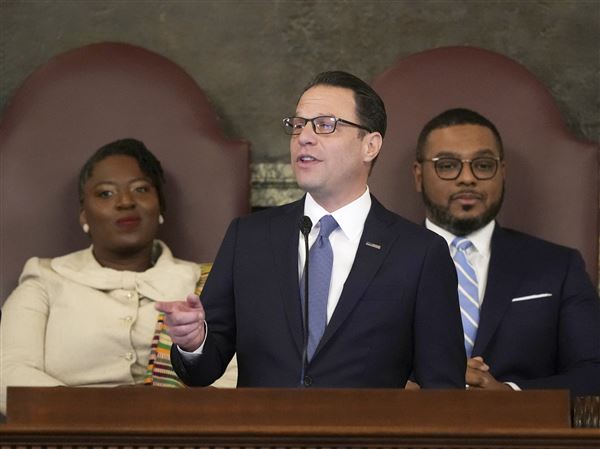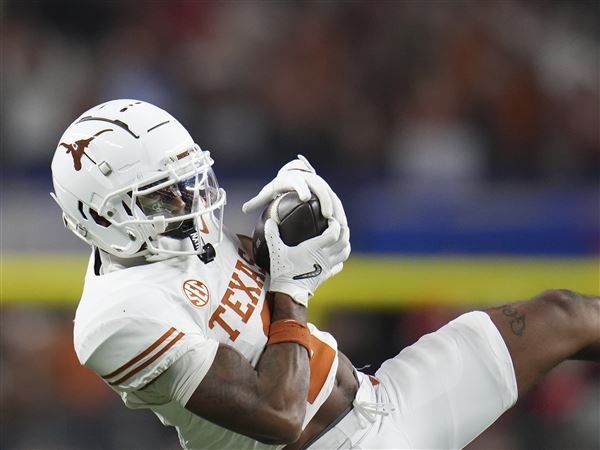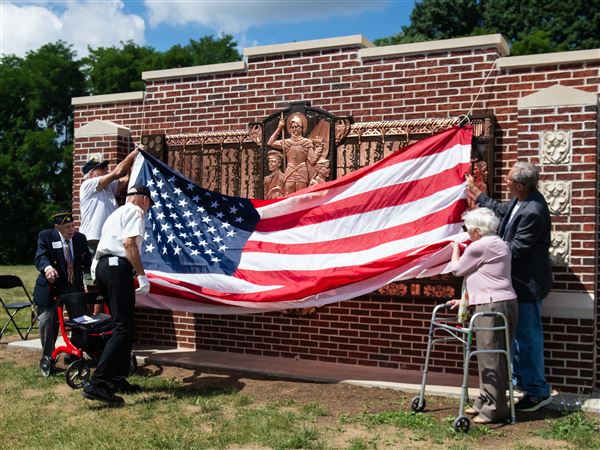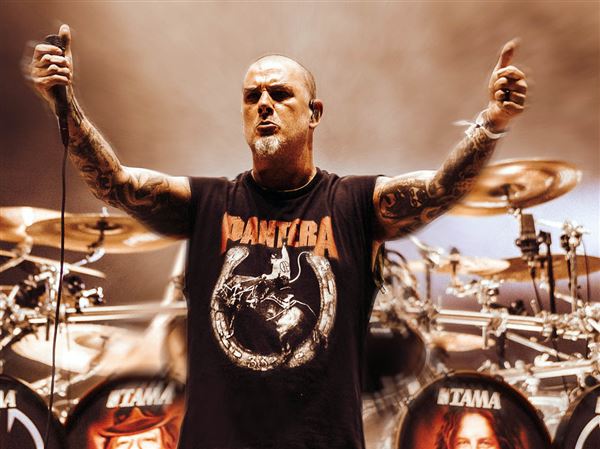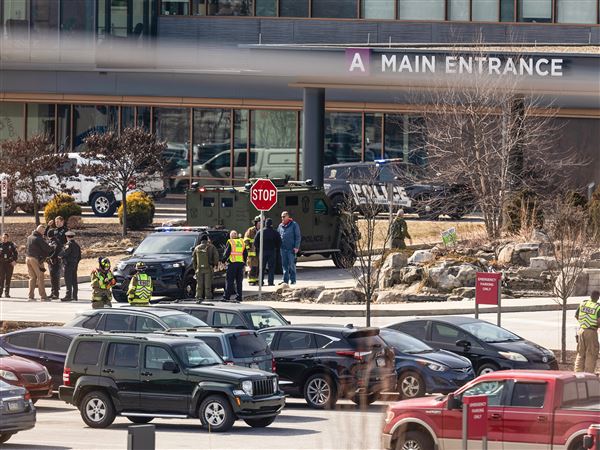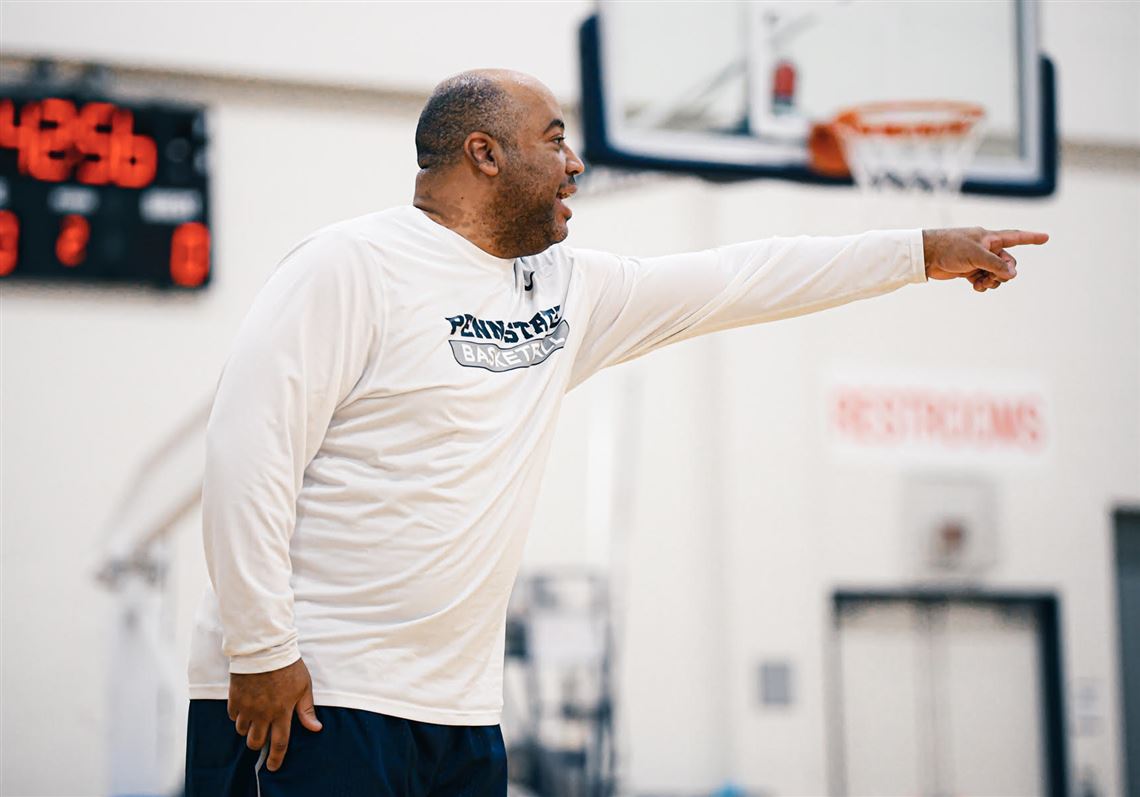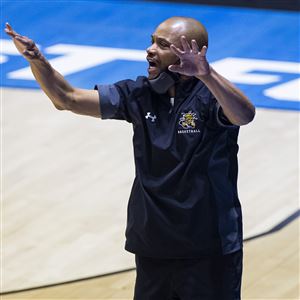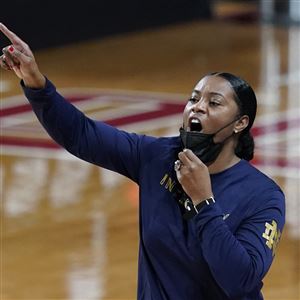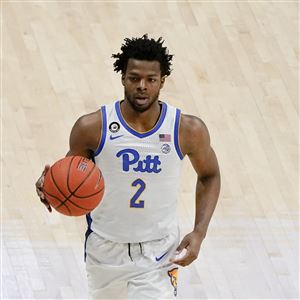Even as he sat near the pinnacle of his profession, helping coach a Boston Celtics team that twice faced LeBron James with a trip to the NBA Finals on the line, Micah Shrewsberry’s dreams laid elsewhere.
From the outside, he had it made in the NBA, with a life at the highest level of the game and a seat on the bench of one of the NBA’s most storied franchises. Shrewsberry, though, longed for something else. To him, college basketball was home, a sport in which he grew from a twenty-something assistant into a highly valued lieutenant on Final Four teams. It was there, not the NBA, where he hoped to be a head coach.
“That’s where I knew, eventually, I wanted to be,” Shrewsberry said. “This is what I wanted to do.”
Eventually, he got there, earning the head coaching position at Penn State earlier this year. For much of their existence, the Nittany Lions have been a graveyard for promising coaching careers, with four NCAA tournament appearances in the past 56 years. What might seem like a dead end was a destination for Shrewsberry. Now that he’s heading a program in a league he grew up compulsively following as a boy in Indiana, he’s seeking to do what many have tried but no one has accomplished in a half-century — turn a football school into a consistently relevant basketball power.
He just might be the person to do it.
“I just think Penn State did a fabulous job in understanding what has worked at Purdue and what has worked at Butler, why can’t it work at Penn State?” said Purdue head coach Matt Painter, under whom Shrewsberry worked as an assistant from 2011-13 and 2019-21. “A lot of times guys get hired, their motto is kind of winning the press conference instead of understanding who’s best to do the job at this institution. I just thought it was a perfect match.”
What created that match was a unique background that makes Shrewsberry adept for a unique challenge that is the job he now holds.
The 45-year-old has spent time in virtually every position at every level of the game. He has been a Division III assistant and a Division I director of basketball operations. At 28 years old, he got his first college head coaching position at Indiana South Bend, where he went from three wins his first year to 12 in his second. In three years as an assistant coach at Butler, he saw how a private school of 5,000 in the Horizon League could punch above its weight, twice making the national championship game. In two separate stints at Purdue, he helped guide one of the Big Ten’s most consistent winners.
“He did everything for us,” Painter said. “In terms of organizing what we were running, teaching it, running specials after timeouts, side outs, out-of-bounds specials, last-second plays — you name it, and he ran it. He was totally in charge and did a really good job. We learned a lot from him in our program.”
Then, of course, there’s a bullet point that only appears on so many college coaching resumes — significant NBA experience. Shortly after Brad Stevens, his old boss at Butler, was hired by the Celtics in 2013, Shrewsberry was offered a chance to join a staff that would be tasked with leading Boston through a rebuild after it shipped away its aging stars. With Painter’s encouragement, he took the job — and a leap of faith.
It paid off. Through some savvy roster construction and Stevens’ tactical acumen, the Celtics never tanked in the way other NBA franchises did in the mid-2010s. During Shrewsberry’s six-year stay, Boston made the playoffs five times, peaking with Eastern Conference finals appearances in 2017 and 2018.
For as much as he valued and gained from his time in the NBA, the lure of college was unshakeable. Shrewsberry interviewed for head coaching positions for years, only to routinely come up short, something Painter believes was tied to recruiting, an essential part of a college coach’s job but a non-existent facet of professional coaching.
“You kind of do [have doubt],” Shrewsberry said of his college job prospects. “When you’re going through that process and you get a no and another no and another no, there’s a little bit of self doubt that creeps in. What can I do better? What should I be doing better? But you also have a responsibility to where you are.”
He fulfilled that responsibility with the Celtics, but when Painter had an opening on his staff in 2019 and reached out to Shrewsberry, he leapt at the offer. Back in college with a decorated program, the head coaching opportunities for which he clamored began to present themselves.
Then came Penn State. The Nittany Lions, for all their shortcomings, provided Shrewsberry not only with the familiarity of the Big Ten, but the rare chance to go directly from being an assistant with no Division I head coaching experience to the top position in a major-conference program.
It could be a mutually beneficial arrangement. To those who know him best, Shrewsberry has a set of traits that make him well-equipped to lead a program. He understands the nuances of the game while also understanding people and, specifically, college-aged players, a balance with which many coaches can struggle. He has patience, but also an edge. More than anything else, he is, as Painter put it, “his own guy,” with a background that speaks for itself.
“Those experiences as an assistant get kind of that instant respect from players,” Painter said. “‘We’re trying to get to a Final Four.’ Well, he’s been there twice. Players want to get to the NBA. He’s been there for six years.”
He’ll look to achieve where others have failed at a program that has occasionally found success only to quickly veer away from it. Jerry Dunn got the Nittany Lions to a Sweet 16 in 2001, but went 14-42 in the two seasons that followed. Ed DeChellis needed eight years to get to an NCAA tournament and once he did, he left his alma mater for a Patriot League school. Pat Chambers required even longer — nine years — to produce a tournament-caliber team and mere months after he put that together, an internal investigation into inappropriate conduct forced him to resign.
Obstacles await. For all of Penn State’s success beyond football, the school’s commitment to men’s basketball has been called into question at times. It has the lowest budget in the Big Ten and is the punchline to infamous stories like a Bon Jovi concert rehearsal preventing the Nittany Lions from using the Bryce Jordan Center practice courts.
Where many see pitfalls, however, Shrewsberry sees potential. And it’s that hope that will buoy him as he begins the work of fulfilling a dream.
“You can win here,” Shrewsberry said. “There are people that are winning here. Now, I just need to figure out what they’re doing. What can I take from each person and try to add it to what I want to do here to help us win at a consistent level?”
Craig Meyer: cmeyer@post-gazette.com and Twitter @CraigMeyerPG
First Published: November 8, 2021, 11:00 a.m.
Updated: November 8, 2021, 12:32 p.m.
